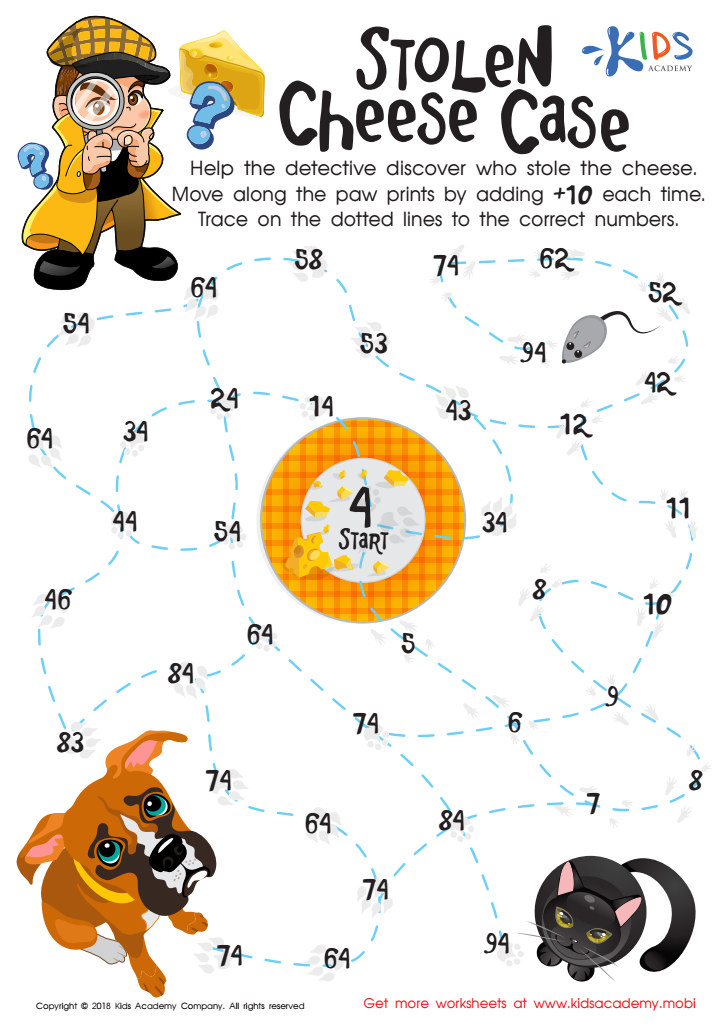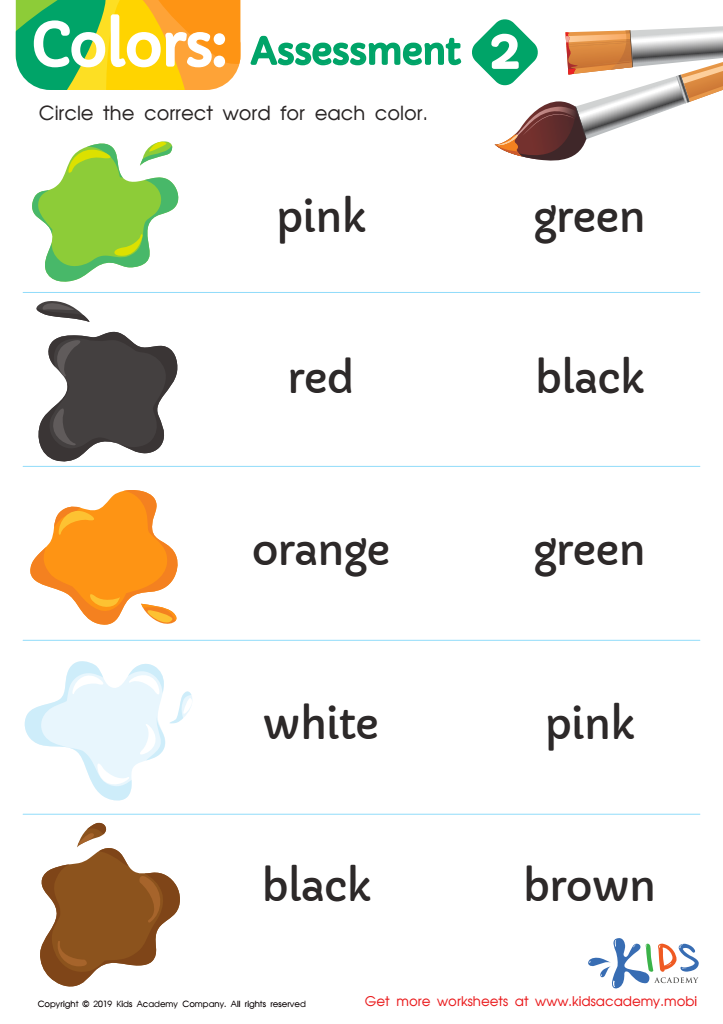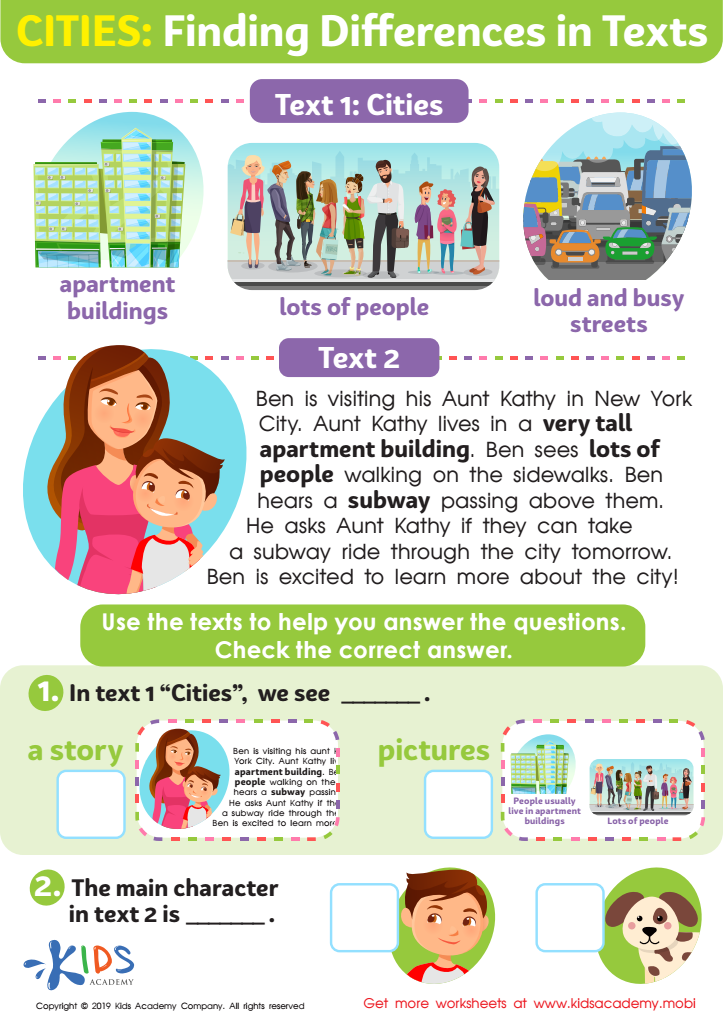Attention to Detail Easy Worksheets for Ages 4-7
5 filtered results
-
From - To
Welcome to our "Attention to Detail Easy Worksheets" section, specially designed for young learners aged 4-7. These engaging worksheets help spark curiosity and enhance observational skills through fun and interactive activities. With a variety of exercises focusing on identifying differences, recognizing patterns, and completing visual sequences, children will develop critical thinking and fine motor skills. Perfect for homeschooling or classroom use, our resources ensure that learning remains enjoyable and effective. Foster your child's attention to detail and set them on the path to academic success with our thoughtfully crafted worksheets. Explore and watch them thrive in a fun-filled learning journey!


Stolen Cheese Case Maze Worksheet


Counting Seedlings Worksheet


Colors: Assessment 2 Worksheet


Cities Worksheet


Cities: Finding Differences Worksheet
Attention to detail is a crucial skill for children aged 4-7, as it lays the foundation for effective learning and problem-solving in their educational journey. Parents and teachers should care about fostering this skill for several reasons.
First, developing attention to detail helps children improve their focus and concentration. In a world filled with distractions, the ability to hone in on specific information is vital for academic success. Children who can pay attention to details are more likely to comprehend instructions accurately and excel in tasks.
Second, strong attention to detail promotes critical thinking and analytical skills. When children learn to observe and analyze small elements within a task or story, they cultivate a deeper understanding of the material, which enhances their overall cognitive development.
Furthermore, this skill fosters perseverance and patience. Since attention to detail often requires careful observation and incremental effort, encouraging this trait helps young learners build resilience in the face of challenges.
Lastly, fostering attention to detail nurtures creativity, as children begin to see connections and nuances in their environment, leading to imaginative thinking and innovative ideas. By prioritizing this skill, parents and teachers equip children with essential tools for lifelong learning and success.
 Assign to My Students
Assign to My Students



















